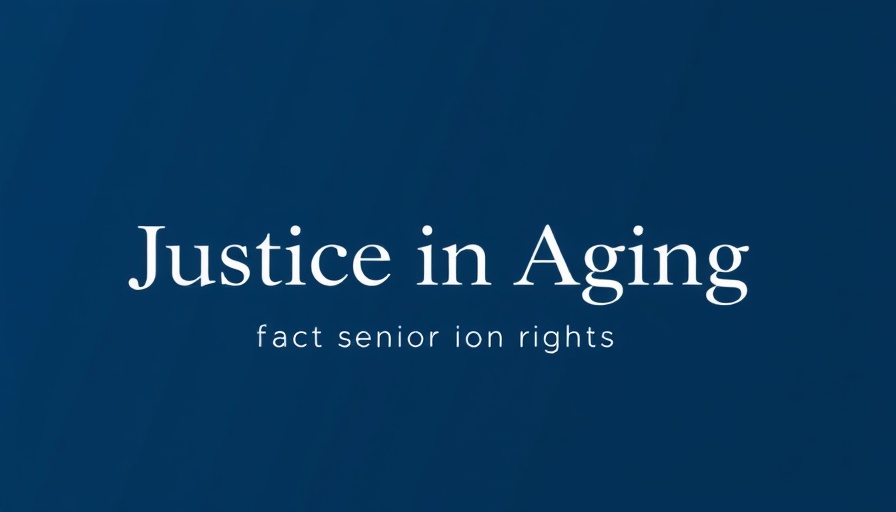
Understanding Medicare Access Post-Incarceration
The transition from incarceration back into society can be incredibly challenging, particularly for older adults navigating the complexities of healthcare access. Many seniors exiting incarceration struggle with retaining health insurance coverage, yet the path to Medicare can be fraught with obstacles. As this population often contends with unique health issues, ensuring they have straightforward access to Medicare is crucial.
The Importance of Enrollment Timing
Enrolling in Medicare at the right time can significantly impact the well-being of seniors who are reentering society. For many, the process often feels overwhelming due to complex eligibility requirements and the additional burden of adjusting to life after incarceration. Information about when to apply, what is needed for enrollment, and how certain health circumstances can influence eligibility are vital for these individuals.
Healthcare Needs of Older Adults in Reentry
For seniors coming out of incarceration, health needs may be heightened. Research often shows that older adults, especially those with histories of incarceration, frequently face chronic health issues. A comprehensive understanding of how Medicare covers a variety of services, such as mental health care, rehabilitation, and preventative services, is essential. This allows individuals to maximize their coverage and access the health services they so urgently need.
Dual Eligibility: Navigating Medicare and Medicaid
Another critical aspect to consider is for individuals who qualify for both Medicare and Medicaid. This dual eligibility can provide a safety net, as Medicaid often covers additional services that Medicare does not. Yet, the intricacies of these programs can compound the confusion for reentering seniors. A deep awareness of how these two programs interact can lead to better healthcare resource allocation for this demographic.
Counterarguments: Is Medicare Enough?
Some critics argue that Medicare falls short in addressing the comprehensive needs of seniors who have been incarcerated. While it provides essential health insurance, there are gaps when it comes to specialized care consider necessary for this population. An increased dialogue around enhancing Medicare benefits, or supplementary programs tailored for returning seniors, can provide valuable insights into making substantial improvements in health outcomes.
Practical Insight: Steps for Successful Enrollment
For seniors ready to reenter society, knowing what steps to take for successful Medicare enrollment can ease a significant barrier. Outreach should focus on educating about local community organizations that can assist during this critical transition, as well as understanding key documents and eligibility requirements crucial for enrollment.
Conclusion: A Call to Action for Advocacy
As advocates strive to improve Medicare accessibility for seniors exiting incarceration, raising awareness and providing clear resources will be imperative. Joining organizations like Justice in Aging can offer additional tools and support for both seniors and their families navigating this complex landscape. By engaging with community resources and staying informed, we can help ensure that older adults reentering society receive appropriate medical care and support as they transition into a new chapter of life.
 Add Row
Add Row  Add
Add 




Write A Comment